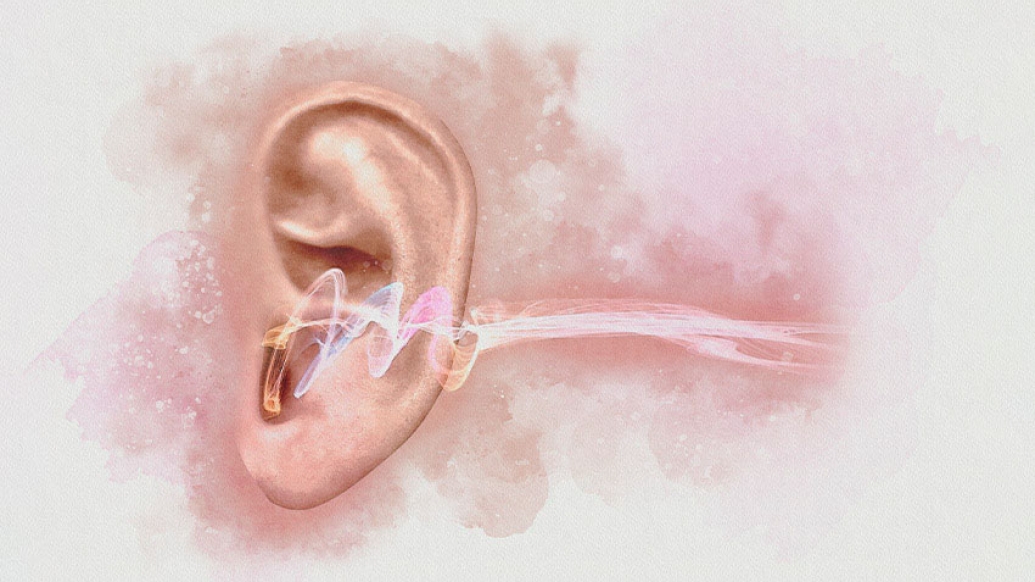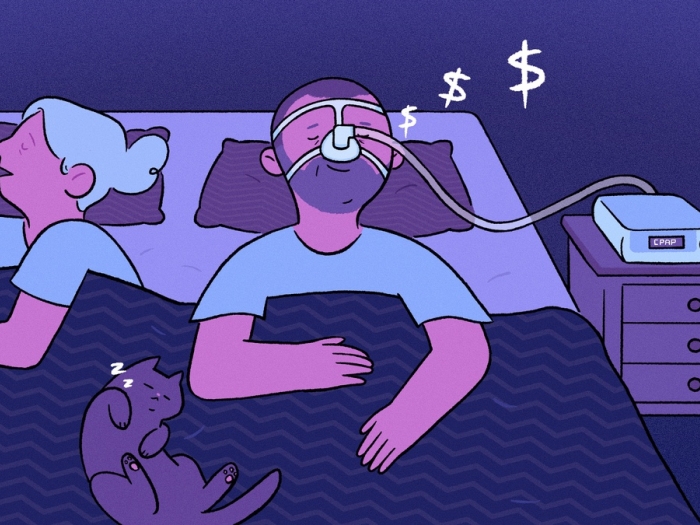Audiology expert provides insights on the new FDA regulation.
9:55 AM
Author |

Last month, the Food and Drug Administration announced that hearing aids will soon be available for purchase over the counter for adults with "mild to moderate hearing loss." Before this new regulation was announced, individuals were required to see an audiologist to obtain a traditional hearing aid.
Currently, to determine if a hearing aid will improve a patient's communication, two important evaluations are administered by a hearing health care professional. First, a comprehensive review of the patient's communication needs is completed. And then a standardized test called an audiometry is given to quantify the severity and type of hearing loss experienced.
MORE FROM MICHIGAN: Sign up for our weekly newsletter
Once the audiologist has a complete picture of the patient's hearing loss, as well as an idea of the situations where they encounter hearing difficulty, they will recommend the most appropriate type of hearing technology.
However, millions of Americans will soon be able to purchase hearing aids at places like their local pharmacy without a consultation with an audiologist. But Devin McCaslin, Ph.D., director of audiology at Michigan Medicine, says that there are a few significant things to remember when dealing with hearing loss.
"Overall, this new change is great," said McCaslin. "Before, there were just a few manufacturers that made hearing aids, which led to an access barrier that revolved around cost. But now the FDA estimates that people will save nearly $2,800 when purchasing hearing aids, which is phenomenal."
McCaslin says that prior to this regulation, many individuals avoided addressing their hearing issues because of other inhibiting factors.
"You're now going to see a lot of people that have been living with problems related to their hearing for a long time seeking hearing aids," he said. "This may be because they didn't want to see an audiologist, for example, or because they lacked awareness around their individual condition. Inevitably, the perceived 'risks' associated with addressing hearing loss will now be fewer, which will better serve a lot of people."
However, McCaslin notes that if an individual is on the fence about whether they have mild to moderate hearing loss, it is always best to see a hearing professional before purchasing an over-the-counter hearing aid.
"It can be difficult for some to assess if they have a hearing condition," he said. "This is why I always recommend that people make an appointment with a hearing specialist if they're wondering if they're in the fitting range for a hearing device or want recommendations about which ones to purchase. If a person thinks that there is something wrong with their hearing, it's always a good idea to have a hearing test done by a professional."
If a person thinks that there is something wrong with their hearing, it's always a good idea to have a hearing test done by a professional.
McCaslin says that there are some definitive "red flags" that individuals should pay attention to when deciding to see a hearing specialist.
"It's important to note that you can't obtain an over-the-counter hearing aid if you're younger than 18 years of age," said McCaslin. "And if your hearing is significantly better in one ear than the other, this could be a sign of something more serious than mild to moderate hearing loss and a reason to see an audiologist. Also, if you've ever suddenly lost hearing in one or both ears, this is cause for seeing a specialist."
McCaslin adds that if an individual experiences a "ringing, roaring or buzzing in one or both ears," this is also a sign that it's time to see a professional.
"Dizziness is another significant reason to see a hearing professional, and pain in one or both ears is, as well," he said. "An expert can help you determine if you're experiencing hearing loss due to age, noise exposure (that may even occur naturally) or something more significant, like a medical condition that needs to be treated."
According to McCaslin, 72% of men over the age of 65 have never had a hearing test, and most individuals aren't aware of how their hearing abilities register or what is responsible for their hearing loss.
"New entrance for many into the hearing aid market is a great thing," said McCaslin. "As innovation within the devices themselves continues to grow, treating hearing loss can become a more regular thing. But if you're experiencing hearing concerns that worry you, it's never a bad idea to make an appointment with an audiologist."
Like Podcasts? Add the Michigan Medicine News Break on iTunes or anywhere you listen to podcasts
Live your healthiest life: Get tips from top experts weekly. Subscribe to the Michigan Health blog newsletter
Headlines from the frontlines: The power of scientific discovery harnessed and delivered to your inbox every week. Subscribe to the Michigan Health Lab blog newsletter
Like Podcasts? Add the Michigan Medicine News Break on Spotify, Apple Podcasts or anywhere you listen to podcasts.

Explore a variety of healthcare news & stories by visiting the Health Lab home page for more articles.

Department of Communication at Michigan Medicine
Want top health & research news weekly? Sign up for Health Lab’s newsletters today!





